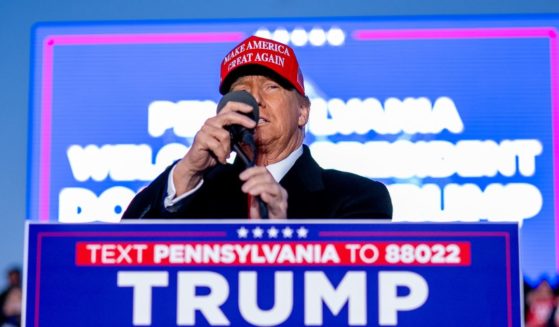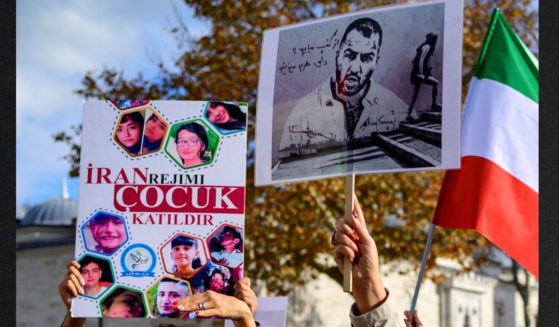Major Food Company Becomes One of First Businesses to Require Frontline Workers to Get COVID Vaccine
Meat processer Tyson Foods will require all of its U.S. employees to get vaccinated against COVID-19, becoming one of the first major employers of frontline workers to do so amid a resurgence of the virus.
Tyson, one of the world’s largest food companies, announced Tuesday that members of its leadership team must be vaccinated by Sept. 24 and the rest of its office workers by the following month.
Its frontline workers must be vaccinated by Nov. 1, although the company said the specifics were being negotiated with unions.
Tyson said just under half of its U.S. workforce — about 56,000 employees — have been vaccinated after the company staged more than 100 vaccinated events since February. The Springdale, Arkansas, company plans to continue with those events and offer a $200 bonus for all frontline workers who receive a vaccine.
In a memo to employees, CEO Donnie King expressed alarm over the rise of the more contagious delta variant and made clear the vaccine requirement was needed to overcome persistent hesitancy to get the shots.
“We did not take this decision lightly. We have spent months encouraging our team members to get vaccinated — today, under half of our team members are,” King wrote.
“We take this step today because nothing is more important than our team members’ health and safety, and we thank them for the work they do, every day, to help us feed this country, and our world.”
Tyson, whose brands include Jimmy Dean and Hillshire Farm, has grappled with outbreaks of the virus at its plants and faced lawsuits from the families of some workers.
In a news release, the company said the number of infections at its plant are currently low after the company spent $700 million on efforts to safeguard workers.
While the number of coronavirus cases has risen in recent weeks, July saw the lowest number of COVID-19 deaths in the United States — 5,075 — since February 2020, according to the National Center for Health Statistics.
In spite of that, some employers have been imposing vaccine mandates for workers as vaccination rates have plateaued in spite of months of information campaigns, bonuses, time off and other incentives for people to get the shots.
Others, including the federal government and some state and local authorities, are requiring that unvaccinated workers face weekly testing.
In the private sector, many of the vaccine mandates have from companies with mostly office workers who are already largely vaccinated.
Many companies that rely on large low-income workforces, including Amazon, Walmart and major grocery chains, have declined to mandate vaccines for their frontline workers, in part to avoid fueling a labor crunch and persistent worker turnover.
Many unions also are firmly opposed to vaccine mandates for their workers.
The spread of the delta variant is prompting some companies to reimpose mask mandates for workers — even those who are vaccinated — in keeping with the latest guidance from the Centers for Disease Control and Prevention.
Unionized auto workers at three companies — General Motors, Ford and Stellantis — will have to go back to wearing masks regardless of their vaccination status, according to a decision announced Tuesday by a task force of representatives from the companies and the United Auto Workers.
The move comes just under a month after vaccinated union workers were allowed to shed their masks.
Brian Rothenberg, a spokesman for the 397,000-member United Auto Workers, said the union is against vaccine requirements because some people have religious or health concerns about vaccinations.
In spite of those objections, tougher vaccine rules are gaining traction among restaurants, bars and some big entertainment companies, both for workers and customers.
In Las Vegas, MGM Resorts International announced that unvaccinated employees would have to pay $15 to get tested for the virus onsite or obtain a test offsite and bring in the results. The company also said unvaccinated employees would not be paid for time off to quarantine if they test positive for the virus.
MGM Resorts has conducted several vaccination clinics and offered incentives including drawings for employees to win prizes such as hotel stays and cash.
But President and CEO Bill Hornbuckle complained about the region’s low vaccination rate in a letter to employees imploring them to get the shots.
“Our region’s low vaccination rate is putting us back on the path to overrun hospitals, unnecessary deaths, fewer tourists, and possible furloughs and layoffs,” Hornbuckle wrote.
“None of us want that.”
Correction: An earlier version of this story named the wrong Arkansas city as headquarters for Tyson Foods. It is Springdale.
The Western Journal has reviewed this Associated Press story and may have altered it prior to publication to ensure that it meets our editorial standards.
Truth and Accuracy
We are committed to truth and accuracy in all of our journalism. Read our editorial standards.












